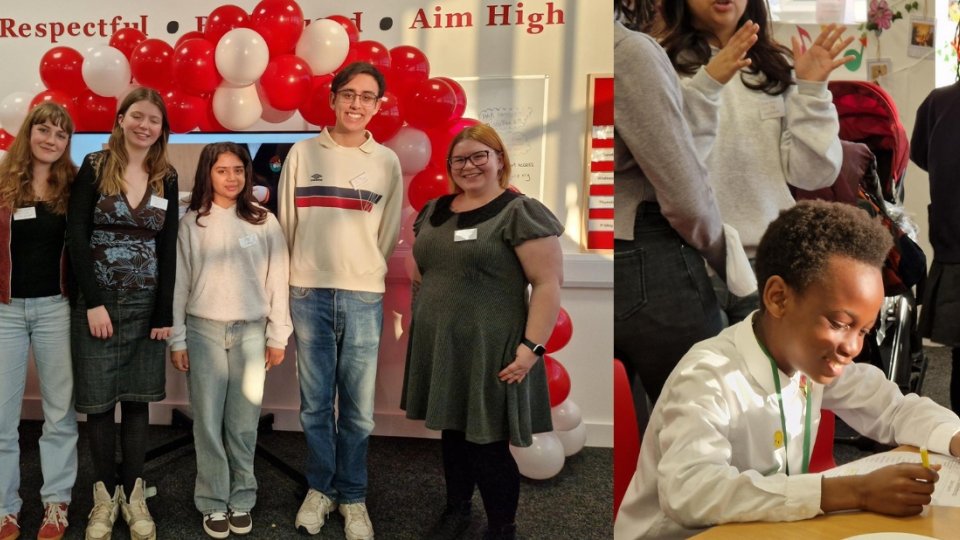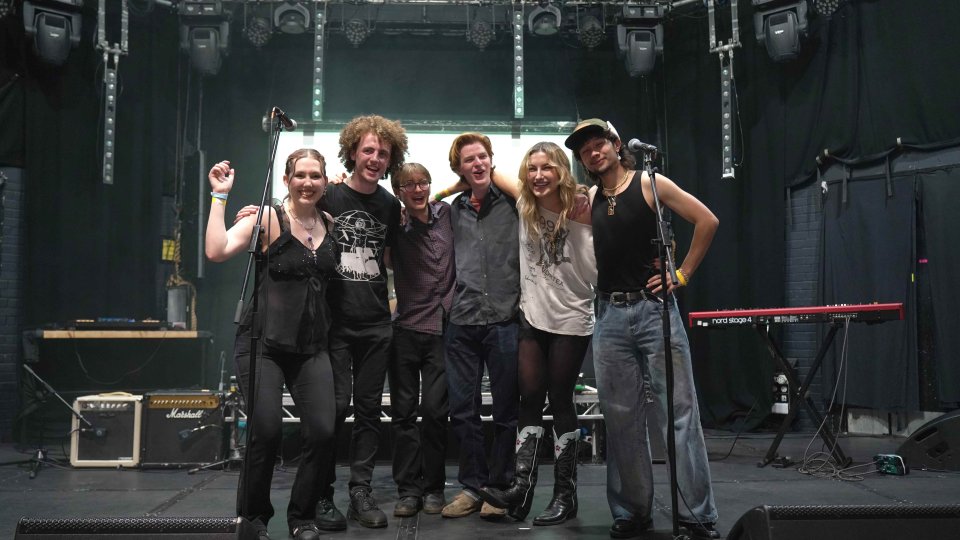Nick is from Bedford, and did A levels in History, English, Economics and Philosophy. He specialised in Social Anthropology at King's, firstly as an undergraduate from 2006 - 2009, then as a masters and PhD student. When he wrote this piece in April 2012, he was working on his doctoral thesis.
We asked Nick to look back at his time as an undergraduate a King’s and write this piece for students interested in studying social anthropology as part of the Human, Social and Political Sciences (HSPS) course.
How do people get interested in a subject like anthropology?
Because anthropology is a subject rarely studied in school, those who choose to pursue it at a higher level tend to have cultivated their interest through detailed and active personal reading.
When I was in the sixth form (the last 2 years of school), I began by reading widely available paperbacks by prominent biological anthropologists (e.g. Diamond's Guns Germs and Steel, and the many popular science books by Robin Dunbar), then moved onto Pascal Boyer's cognitive work which stands between the twin disciplines of social and biological anthropology, before finally ending up reading pure social anthropology. My favourites at the time were Purity and Danger by Mary Douglas and The Gift by Marcel Mauss. Another book you might also consider reading is Clifford Geertz's The Interpretation of Cultures. These books are also all widely and cheaply available.
My advice is simple for those who are just starting to develop an interest in the discipline; read as much about anthropology as you can. Look at the department's website for a reading list; look at the suggestions given by other departments at other universities (after all, you'll probably be applying to up to several institutions). Check out the websites of professional bodies, such as the Royal Anthropological Institute, and take a look through the many blogs written by professional anthropologists across the internet. If you are interested in current global affairs, then complement this interest with a look at what anthropologists might have to offer (e.g. Ouroussoff’s Wall Street at War, or Karen Ho’s Liquidated: An Ethnography of Wall Street). But, always remember to think critically about the things you read.
You need to start reading now, because it is important to understand whether this is what you want to do with the next three years of your life. Cambridge is an amazingly fun place to study, but the students here work extremely hard. You should know before applying that you actually want to spend a lot of time reading books in the fields of HSPS / anthropology.
What else would you suggest?
Alongside reading, I'd strongly recommend that, if possible, you try to visit our department's small but excellent Museum of Archaeology and Anthropology, where you will be able to get a feel for the material realities of social anthropology.
Talk to the museum staff - they are friendly and knowledgeable, and will help you to understand the significance of items in the collection. You might also find relevant museums in your local area.
What sorts of questions should prospective / first year HSPS students ask themselves?
If you are just starting to develop an interest in social anthropology, either before starting at Cambridge or in the first year of your course, but are still not sure if this is the subject you really want to pursue as a specialism, then I'd recommend asking yourself the following questions:
- What distinguishes anthropology from its sister disciplines such as history and sociology?
- What makes you want to study it as compared to these other disciplines?
- Do you find anthropology's concern with the minutiae of how other people live their lives interesting?
- When you read accounts of such things, does it make you ask broader questions about the nature of what it means to be human?
You need to know before applying that you actually want to spend a lot of time reading books in the fields of HSPS / anthropology. Do you find anthropology's concern with the minutiae of how other people live their lives interesting?
Can you tell us about your time as an undergraduate?
I matriculated (became a member of the University) in 2006 when the old Arch & Anth course was still running. In my first year at Cambridge I studied biological anthropology, social anthropology and archaeology.
This is a great combination of subjects and I think it produces critical thinkers with a broad palette of resources to draw on. I enjoyed all three of the disciplines, and found the interplay between them fascinating. When it came to choosing a subject for my second year, I struggled hard to make up my mind but eventually decided upon social anthropology. I spent the next two years feeling wistful that I could no longer study archeology or bio-anth, while simultaneously knowing that I could never give up my chosen discipline.
In the summer of 2008, I carried out my first period of ethnographic research, which formed the backbone of what was to become my undergraduate dissertation. Most social anthropology students do likewise, although it is by no means compulsory. Of those that do, some stay in the UK, while others travel abroad. Cambridge has in place an excellent system of travel grants, which are both university-wide and college specific, and most of my friends were successful in receiving at least some money toward fieldwork expenses, depending upon the ambition of their projects and the strengths of their applications. King's is particularly special for providing travel money to each undergraduate in the form of the Ferris grant, a financial help which can be invaluable to the enthusiastic but cash-strapped anthropologist on their first overseas fieldwork trip.
My first fieldwork was in Mumbai, India. While I was there, I found the experience very difficult and testing. First experiences in the field are often confusing and intense, and what people don’t always realise is that doing anthropology requires hard work. To make contact with people relevant to your project, to convince them of its merits (which is sometimes difficult if their own interests run in a counter direction), and to try to make sense of what is going on around you; all whilst organising your own life in a place of bewildering difference, is a hard task.
However, on returning to the UK, I instantly realised that I wanted nothing more than to be back in the field which only a few weeks previously I had been desperate to leave. This may sound like a strange perversion, but it is a feeling understood by many anthropologists.
Having graduated from King's, I completed an MPhil, started a PhD, and am now writing to you, still a student of King's College, from rural Punjab in India. Now in the final three weeks of fieldwork which I began in November 2010, I'm starting to mentally prepare myself once more for life lived in King's College.
It must be a great opportunity to travel, right?
To study anthropology, you don't have to be desperate to travel the world, and I also wouldn't recommend using the discipline as an excuse to do so. What is essential is a certain disposition toward the other; you must want to study that which is beyond your current range of experience, and you should desire to challenge yourself through the study of such material.
Would you recommend King’s?
For prospective HSPS students who are specifically interested in studying anthropology, King's is a good choice of college. We have a strong tradition in the subject; from 1966-1979, Edmund Leach was the Provost (Master) of the college (check out his books; some are cheaply available in paperback), while recently retired (but still active) Professors include Stephen Hugh-Jones, Caroline Humphrey and Alan Macfarlane, whose book The Empire of Tea provides an easy introduction to a subject which might at first appear abstruse. The current anthropology fellows at King’s are involved in a number of exciting research projects. You will also have access to fellows from all colleges of the university through your department.
College almost always provides the social setting for your three or four years at university, and King’s is a place of exciting and intense social activity. It’s your choice what you do. For those who enjoy formal / semiformal organisations, such as societies or the student union, King’s offers these aplenty. Some students choose not to get involved in particular societies but nonetheless play an active role in the social scene of the college. Almost everybody finds a space in which they can be happy. My major leisure activity at Cambridge was playing in a small jazz band with some friends, although I participated, on and off, with other societies.
What do people do after the course?
In my year there were three students specialising in Archaeology and Anthropology, and we ended up dividing equally to study soc anth, bio anth, and archaeology.
We are now all pursuing PhD Programmes, two of us in the UK, and one in America. For those who are interested in research within these disciplines, and especially within the anthropologies, Cambridge offers opportunities paralleled by few other institutions in the UK.
We three students, however, were far from typical, and most of my other friends from the discipline have now started working in a diverse range of industries, both public and private, for profit and not for profit.
April 2012


